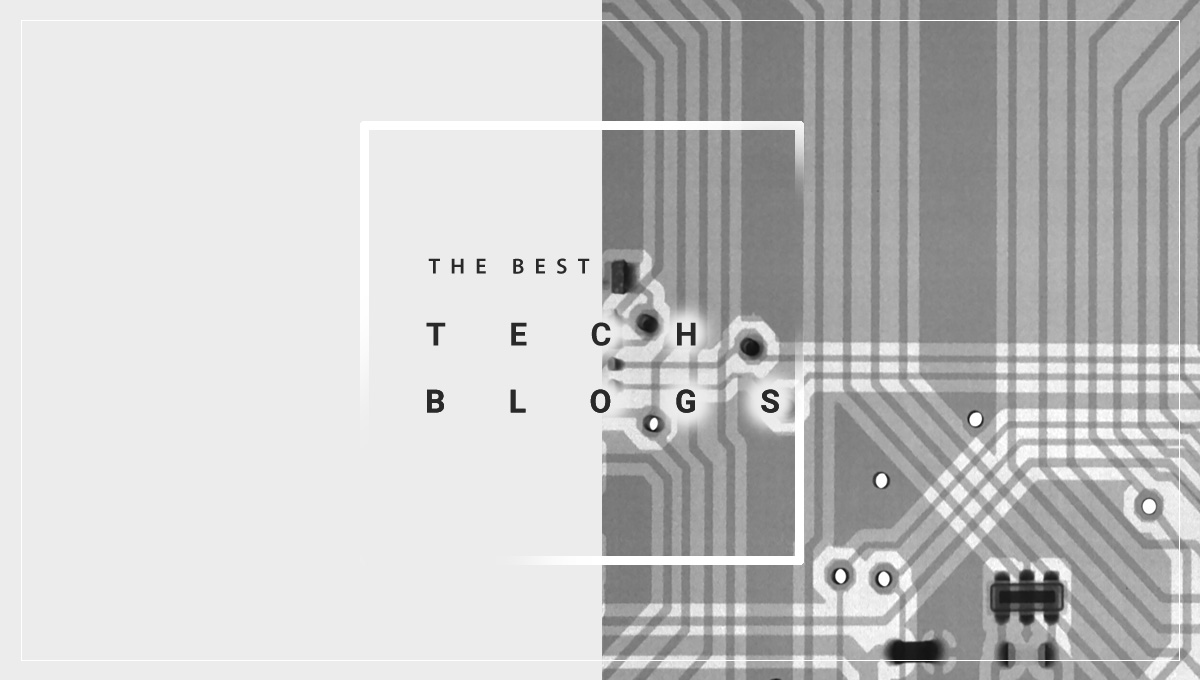The Best tech blog: Your Vital Overview to Browsing the Digital World
The Best tech blog: Your Vital Overview to Browsing the Digital World
Blog Article
How Blockchain Technology Is Revolutionizing Data Protection
Blockchain innovation is essentially altering the landscape of information protection by presenting a decentralized structure that promises enhanced openness and resilience. Unlike conventional systems, which rely upon centralized data repositories, blockchain disperses information across a network, lessening vulnerabilities and solitary points of failing. Making use of advanced cryptographic techniques makes sure that data remains tamper-proof, fostering count on among users and stakeholders. As sectors swiftly adapt to this modern technology, concerns emerge about its broader impact and possible difficulties. What ramifications does this shift hold for future data protection approaches and regulatory structures? The answers may amaze you (Best tech blog).
The Essentials of Blockchain
Blockchain innovation, an advanced principle in digital data administration, basically changes how information is kept and safeguarded. At its core, a blockchain is a dispersed ledger that videotapes purchases across a network of computers, guaranteeing openness and immutability.
Trick to understanding blockchain is the hashing process, which encrypts deal data into an one-of-a-kind alphanumeric code. This cryptographic function ensures that any alteration in the purchase information results in a totally various hash, thereby protecting versus meddling. The agreement device, one more important component, validates and verifies new transactions through a network of nodes, therefore eliminating the demand for a centralized authority.
Moreover, blockchain's append-only framework ensures that data, as soon as added, can not be erased or altered. This particular guarantees a irreversible and proven document of purchases, promoting trust among participants. Consequently, blockchain offers a durable structure for data stability, providing industries a dependable method for tracking and managing electronic information in a protected, clear fashion.
Decentralization and Protection
Decentralization, a core concept of blockchain technology, significantly boosts information security by distributing control throughout a network instead of depending on a single, central entity. This distribution minimizes the risk of single factors of failing, which prevail in typical centralized systems. By dispersing information across numerous nodes, blockchain ensures that even if one node is jeopardized, the entire network continues to be protected. This redundancy not only fortifies the honesty of the data yet additionally increases its strength to cyberattacks and system failures.

Each individual in the network has accessibility to the entire blockchain, enabling them to validate and examine purchases separately. In general, decentralization is critical in improving data security in blockchain networks.

Cryptographic Techniques
At the heart of blockchain modern technology, cryptographic methods play a critical function in safeguarding information, making sure both confidentiality and stability. Cryptography in blockchain employs a combination of symmetrical and uneven algorithms to secure information, making it accessible only to licensed parties.
Hash features are another critical component, transforming input information into a fixed-size string of personalities, effectively producing a distinct digital fingerprint for each block. This makes sure that any type of attempt to alter the information will certainly cause a completely various hash, thus maintaining the immutability of the blockchain. Moreover, digital signatures verify the credibility and stability of transactions, providing a layer of non-repudiation.
The decentralized nature of blockchain, incorporated with robust cryptographic techniques, gets rid of the need for intermediaries, reducing potential vulnerabilities. As blockchain modern technology progresses, developments in cryptography such as zero-knowledge evidence and homomorphic encryption proceed to enhance protection steps, even more strengthening information defense in this innovative electronic journal system.
Usage Situations Across Industries

In the health care sector, blockchain makes certain the safe and secure storage and sharing of person records, official website advertising interoperability while guarding sensitive data from unapproved gain access to. This innovation empowers clients with control over their case history and assists in seamless coordination amongst doctor.
Supply chain monitoring advantages substantially from blockchain's unalterable journal, which ensures traceability and credibility of items from origin to consumer. By enhancing transparency, blockchain helps minimize issues such as counterfeiting and underhanded sourcing.
In addition, blockchain's decentralized nature is improving the energy sector by enabling peer-to-peer power trading, where consumers can acquire and market excess eco-friendly power directly. This fosters an extra sustainable and reliable energy environment.
In the realm of copyright, blockchain provides a tamper-proof system for makers to register and protect their jobs, ensuring rightful acknowledgment and fair settlement. These diverse use cases highlight blockchain's role as a pivotal force in redefining information security throughout sectors.
Future of Data Protection
As we look to the future of data defense, blockchain technology is poised to play a pivotal function in securing electronic details. With its decentralized and unalterable features, blockchain provides a robust structure for protecting delicate data versus unauthorized gain access to and cyber hazards. This modern technology ensures that once information is recorded, it is virtually difficult to alter without detection, thus supplying a significant benefit over conventional data storage techniques.
The integration of blockchain with various other innovative technologies, such as expert system and the Net of Points (IoT), is expected to improve information protection methods further. By leveraging wise agreements, companies can implement and automate safety methods, decreasing human error and enhancing performance. In addition, blockchain's ability to give transparent and deducible transactions will certainly bolster count on and liability in data management methods.
As regulatory landscapes evolve, blockchain's compliance-friendly nature will become significantly pertinent. It can aid companies fulfill stringent information protection laws, such as the General Information Security Guideline (GDPR) and the California Customer Privacy Act (CCPA), by supplying verifiable documents of information processing tasks. Eventually, blockchain's one-of-a-kind attributes setting it as a transformative device in the recurring quest to protect the electronic globe versus ever-evolving cyber risks.
Verdict
Blockchain technology represents a standard change in information safety and security by leveraging decentralization and cryptographic methods visit to boost openness, depend on, and data integrity. Its ability to remove single points of failing and employ agreement devices substantially minimizes the risk of fraudulence and cyberattacks. This ingenious structure not only encourages customers with greater control over their information but likewise straightens with governing conformity. As cyber threats evolve, blockchain becomes a vital device for robust data protection across different markets.
Blockchain innovation is essentially changing the landscape of information safety by presenting a decentralized structure that promises enhanced openness and durability. Unlike traditional systems, which rely on centralized data databases, blockchain disperses information throughout a network, minimizing susceptabilities and single factors of failing.Decentralization, a core concept of blockchain technology, considerably enhances Discover More Here data protection by distributing control throughout a network rather than depending on a particular, central entity.At the heart of blockchain innovation, cryptographic methods play an essential function in safeguarding information, making certain both discretion and integrity.Blockchain technology stands for a paradigm shift in data safety by leveraging decentralization and cryptographic techniques to boost transparency, depend on, and data integrity.
Report this page